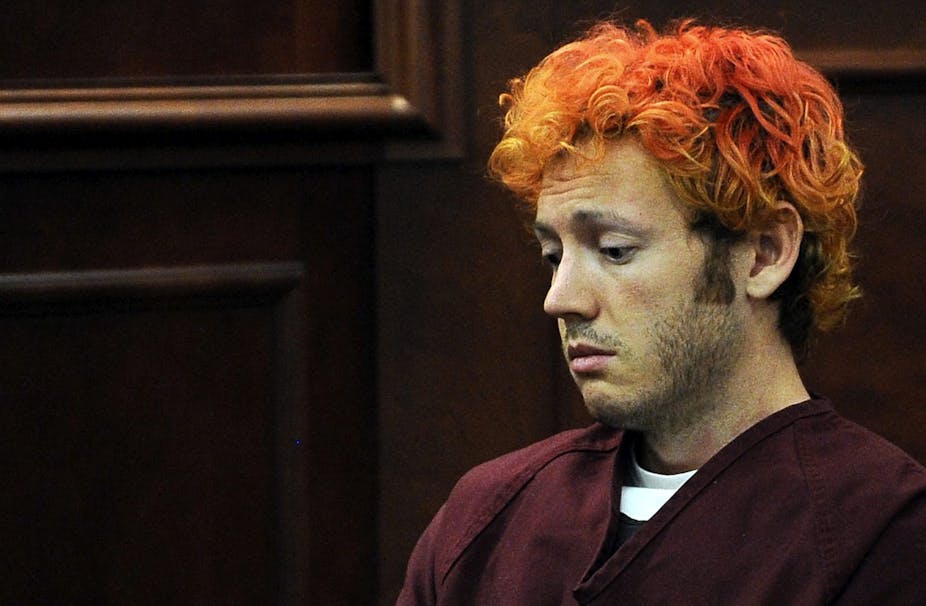The immediate information emerging in the aftermath of James Holmes’ murder rampage in Aurora, Colorado, makes a good case for the idea that media violence begets the real thing. A closer look, however, tells a different tale.
It’s alleged, at this point, that the murderer told police “I’m the Joker” as he was arrested. At face value, this confirms dark fears about youth and media.
Since the late 1920s, American society has fretted about the power movies have to encourage violence and other criminal or anti-social behaviours; it’s been so worried, academics have been paid to research these effects, starting with the Payne Fund Studies in 1929.
If we jump to the present day, and think about rampage killings acted out by young men, it’s easy to conclude that these crimes indeed follow scripts.
The 1999 Columbine murders was one of the world’s biggest ever news stories prior to 9/11. It may not come as a surprise, then, that Finnish researchers found that Pekka-Eric Auvinen, the gunman who killed 8 people and injured 10 others at Jokela High School in 2007, had been a member of an online community dedicated to Columbine murderers Eric Harris and Dylan Klebold. And when Auvinen left a posthumous image of himself pointing a gun at a camera lens, it was easy to draw a parallel with the “you talking to me?” scene from Taxi Driver.

But this thinking is pretty easy to dismiss. Anyone who wants to argue that Batman caused Aurora has to contend with another fact; if we look at most of the young people who were fatally drawn to that screening at that time, we saw humanity at its best. The idea that violent media has created a “me” generation of youths who think of nothing but fame, possessions and the thrill of violence pales against humbling tales of heroism. At this early stage, we do know that when the shooting started, most of the young audience tried to save others. John Larimer, Matt McQuinn and Jonathan Blunk died living by an instinctive moral code that can only be admired.
At the same time, the film industry’s response to the tragedy seems to recognise some sort of social obligation. The immediate cancellation of a number of premieres of The Dark Knight Rises may be no more than a logical mark of respect and box-office takings from the weekend have not been reported. Yet rumours that Sean Penn’s Gangster Squad is to be re-edited, as the film contains a scene that is too redolent of Aurora, acknowledge that fictional violence has real effects - although not the ones we normally hear about. No-one is suggesting the scene might cause copycat killings; the concern seems to be more about upsetting good people.
To understand what happened at Aurora, it’s better not to think about loners who appear to use violent stories to trigger their rage, but instead think about the people who were in the cinema that night, and why.

In those early cinema studies from the 20s, researchers found that most youngsters went to the movies to be social, and hang out with others. In fact, it didn’t much matter what was on the screen.
This remains true. According to film scholar Martin Barker, blockbusters like Dark Knight Rises are social events. People spend ages getting ready to go; they read reviews, they plan the right company, they organise post-screening dinner and drinks where they will eagerly discuss what they’ve seen. Strangely, it doesn’t much matter whether the film is good or bad; the point is to have fun with the people we love.
This isn’t to say that media violence doesn’t have negative effects. It is to say that when we think of these effects, we should think about ordinary people who don’t act out. Some of these people may be frightened by what they see, and come to believe that they live in a hostile world where no-one is to be trusted.
But for many others, blockbusters aren’t about violent fantasies; they’re about being good friends, good parents, good partners. Poignantly, the Aurora victims died being just that.

